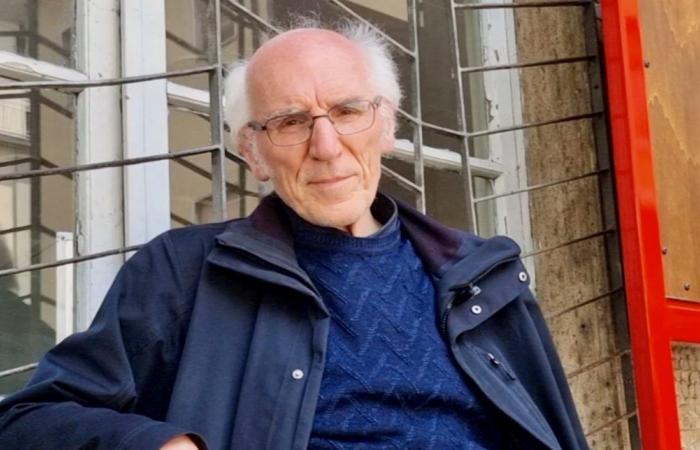by Bruno Silini
He has never taken holidays since he was at the Patronato San Vincenzo in via Gavazzeni, in Bergamo. Two, three days maximum in summer. Don Davide Rota usually does not abandon this place. He sometimes goes to South America. This year he went to Africa for four days to inaugurate a seminar that they rebuilt.
Aren’t you tired of living and working in this African enclave in Bergamo?
«But no, but no. You don’t get tired of this place. Just don’t daydream too much. If you expect too much, you delude yourself, you get disappointed and you get tired. But if you know how things are, you accept them, you lower your demands and whatever comes is fine.”
How many guests do you have?
«The attendance is approximately 300 and is divided into three parts. One (about 50), which I have never dealt with because I don’t really agree, is that of subsidized reception, in the hands of the Patronato cooperative: the so-called Cas (Extraordinary Reception Centre). They are the ones the state sends you along with the money to support them.”
Why don’t you agree?
«Because I don’t want state money. This type of reception is guided by state rules that exclude those most in need.”
The second part?
«It is made up of those welcomed but not subsidized by the State: around 150 people. They have a residence permit and also an employment contract. They are hosted, but they have to pay something. And this also allows the Patronato to have funds to move forward. We have calculated that each person costs one thousand euros per year (excluding food). So, if you welcome 300 people, that’s three hundred thousand euros per season, not counting the costs of electricity, water, gas… And someone has to pay for these.”
The third part?
«We call it the low threshold. They are those who enter the Patronato and have neither a permit nor a job. I deal with these directly and there are around a hundred of them. We need to find the funds for those.”
And where does he go to get them?
“They arrive. They arrive”.
Some psychologists say that we must answer “yes” to the temptation to leave a tiring responsibility, perhaps taking a few plasters with us if things don’t go well. Agree?
«Psychologists do not admit or do not take into account the strength of faith, which allows you to face them, even when faced with very difficult situations. I’ve always done it this way. In my 51 years as a priest, I have spent thirty of them in situations of serious marginalization: first in Bolivia and now here. If we listen to psychologists, I should have “jumped” completely. But I manage, I even manage to find the money and also maintain a good relationship with all these people. It’s as if someone doesn’t know they have energies and, not knowing they’re there, they don’t use them. I know they are there and I use them.”
Is there a picture that comes to mind that represents current society?
«Munch’s scream, but it seems a bit obvious to me. Instead, I like to think that current society is that of the cubists, like Braque or Picasso, where man is cultured in all his dimensions, but in reality he seems to be torn to pieces and recomposed according to strange rules. When society claims to explain everything and doesn’t have a central reason to explain things, it is forced to return a messy image of man, where you can never understand where it begins and where it ends. The aggregating point that explains the meaning and gives meaning to reality has been lost.”
What is the most deep-rooted sin in society today?
«The fact that sin is no longer sin. From time to time it takes on the name of a pathology. We try to explain evil on the basis of pathological components that reveal discomfort and suffering. But is not so. Evil, like good, cannot be explained and cannot be classified as a pathology. This psychological game of explaining everything on the basis of something else leads to no longer having culprits. And when there is no more guilt, there is no more sin. Nobody asks for forgiveness anymore. One hundred years ago, a brilliant Christian like Charles Péguy said that today even sins are no longer Christian. And he was right.”
How is the Church of Bergamo doing?
«I see it in a bit of trouble, like all the rest of the churches. The Church is within a society that is unstructured in its values, which has uprooted faith from the heart of man. Wars are scary, but they are less dangerous than the destruction of values that dominates Western society today.”
Deconstruction?
«The demographic decrease, the unbridled love for (…)





